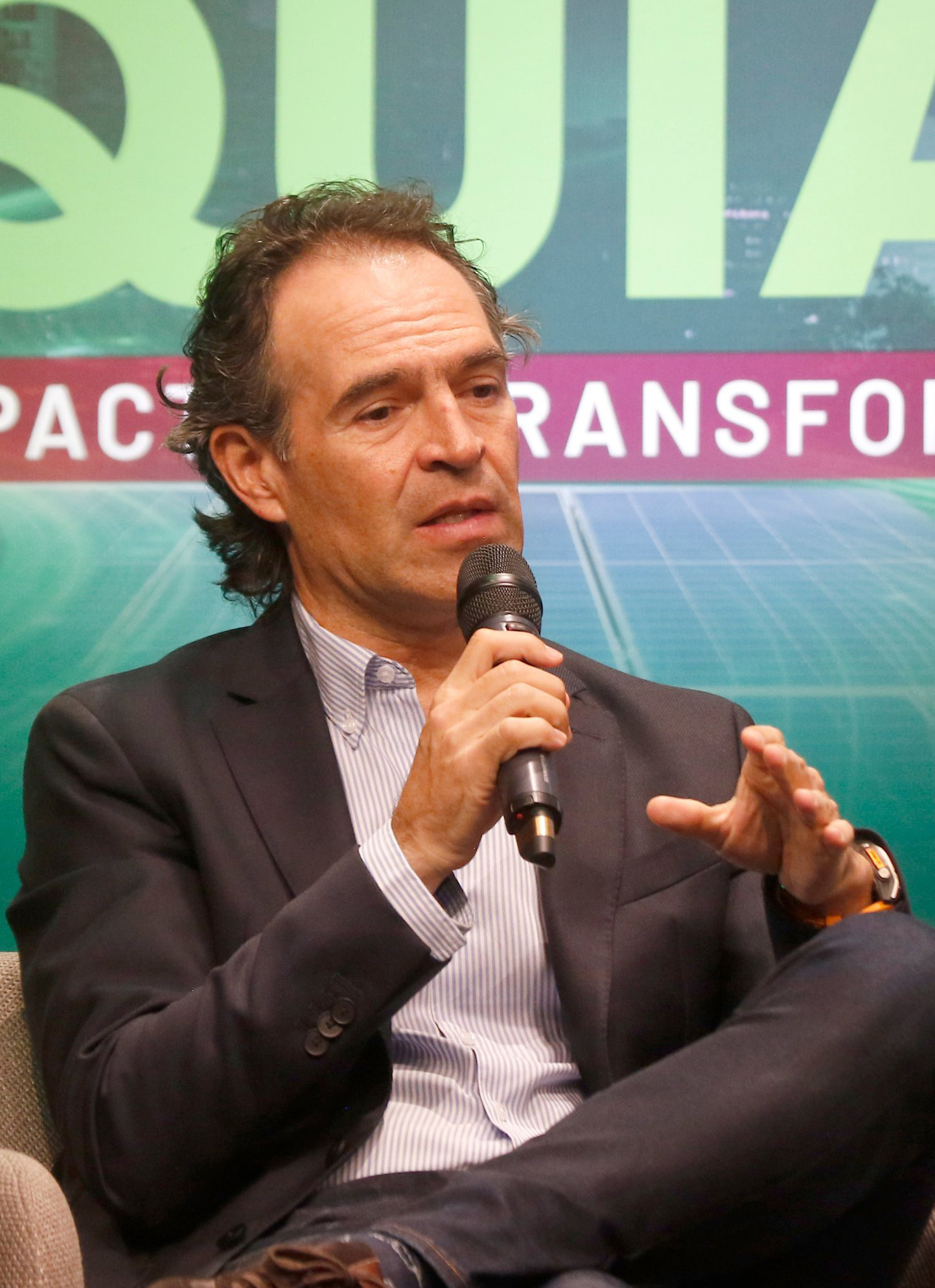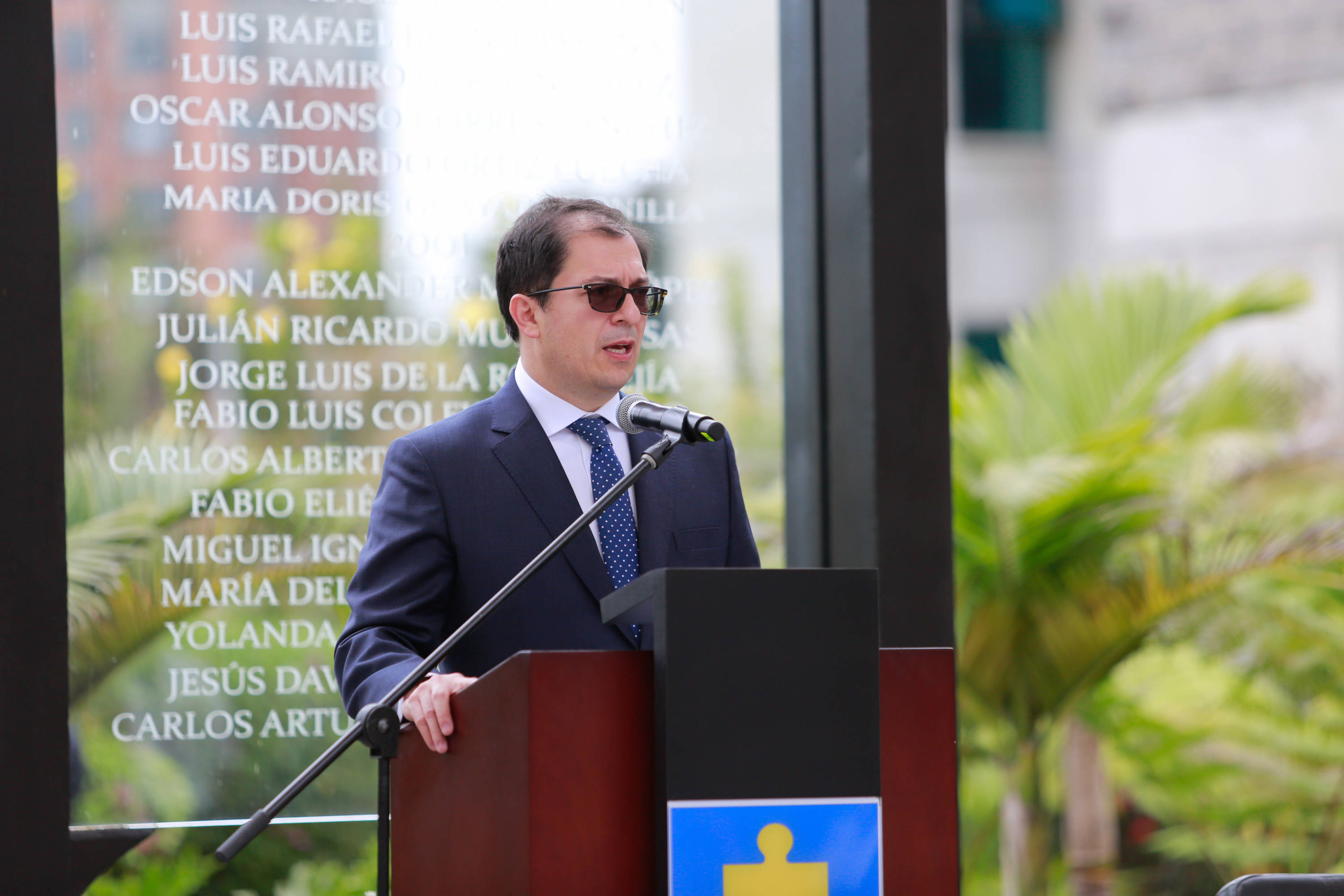Is the President of the Republic the boss of the mayors, as Gustavo Petro claimed in Cauca?

President Gustavo Petro is once again at the center of debate after stating, during a public event in the department of Cauca , that he is the country's "boss of the mayors." This statement comes amid a climate of confrontation with local authorities, including mayors and governors.
“Today, the Mayor of Cali sent me his greetings. All the Army's armored vehicles arrived to protect Cali, and he said, 'Thank you, Minister of Defense.' Period. Ha! They don't want Petro. I'm the mayor's boss and the Army's boss. I'm the mayor's boss, the Army's boss. Whitey, they don't want Petro,” were President Petro's words.
The statements came in response to a message published by the mayor of Cali, Alejandro Eder, on his X account. There, the local leader thanked Minister Pedro Sánchez for the arrival of the Hunter TR-12 armored vehicles to the capital of Valle del Cauca to strengthen security, following the August 21 attack near the Marco Fidel Suárez air base.

Alejandro Eder, mayor of Cali. Photo: César Melgarejo. El Tiempo
"My dear mayor, I appreciate your gratitude to the Minister of Defense and the government. The government, constitutionally, is the president and the minister of the sector, don't forget that. Don't be embarrassed," Petro wrote, in a reproachful tone, hours before his speech.
These words have sparked a heated debate about the scope of presidential authority vis-à-vis local leaders, just days after his clash with Federico Gutiérrez, mayor of Medellín, over his trip to Washington. The statement raises a central question: what does the Constitution really say about the relationship between the president and mayors?
According to the 1991 Political Constitution, mayors are elected by popular vote and are the highest administrative authority in their respective municipalities (Article 315). This means they enjoy political, fiscal, and administrative autonomy, based on the principle of decentralization established in Article 1 of the Constitution.
Although the President of the Republic is head of state, head of government, and supreme administrative authority, this does not automatically make him the hierarchical superior of the mayors.
“Territorial entities enjoy autonomy in the management of their interests, within the limits of the Constitution and the law. Accordingly, they shall have the following rights: to govern themselves by their own authorities; to exercise their corresponding powers; to administer resources and establish the taxes necessary for the fulfillment of their functions (...),” states Article 287 of the Constitution.
For political analyst Carlos Arias, it is essential to clarify that mayors are the ones who have the power to manage the resources of their municipalities, as well as those of cities and governorates.
"In this sense, the president's statement is serious, because either he ignores the Constitution or, with full knowledge of it, he launches this type of diatribe that ends up confusing public opinion and, above all, disrespecting the administrative autonomy of mayors and governors," he noted.

Federico Gutiérrez, mayor of Medellín. Photo: Javier Nieto Alvarez. El Tiempo
However, this does not mean that national decisions are separate from what happens in departments and municipalities. The Executive Branch establishes guidelines and public policies that municipalities must coordinate, for example, on security issues. However, the relationship is always one of coordination and articulation, not subordination.
"From the NATIONAL government, President Petro. Was Santos your boss as mayor? No. The president has to coordinate and cooperate with mayors and governors, but you are not their boss or the boss of the territorial entities," said Senator Angélica Lozano amid the controversy.
The Colombian Federation of Municipalities, for its part, cited the jurisprudence of the Constitutional Court and the Council of State, which has upheld the autonomy of mayors in local decisions. They mentioned the 2018 Council of State ruling, which denied the right to appeal its decisions to a higher authority, and the Court's 1999 ruling C-643, which recognized its exclusive jurisdiction over municipal public property. In this regard, the Federation emphasized that respect for territorial autonomy is essential for local governance and strengthening democracy in Colombia.
But was it ever as Petro claims? Before the promulgation of the 1991 Constitution, Colombia had a more centralized system: mayors were directly appointed by governors, who in turn were appointed by the president.
Everything changed in 1986, when Legislative Act 01 was passed during Belisario Betancur 's administration, establishing the popular election of mayors. The definitive step took place in 1991, when the new Constitution stipulated that both mayors and governors should be elected by popular vote. Hence, Petro's statement would have made sense in pre-decentralization Colombia, but not today.
A similar debate erupted in May 2023, when Petro claimed he was the boss of the Attorney General, then Francisco Barbosa. Then, with the Constitution in hand, he based his claim on Article 115, which establishes that the President of the Republic is "head of state, head of government, and supreme administrative authority."
Various analysts, organizations, politicians, and former judges refuted this interpretation, pointing out that, while Petro is the head of state, that does not make him superior to the other two branches of government: the judiciary and the legislature.

Petro had a similar clash with former prosecutor Francisco Barbosa. Photo: Attorney General's Office
“Article 113 of the Constitution establishes that the branches of public power are the legislative, the executive, and the judicial. The Government, in relation to the Judicial Branch, has certain powers that have nothing to do with one being superior to the other. The Attorney General's Office is part of the Judicial Branch and has administrative and budgetary autonomy. Therefore, it is not true that the President is the Attorney General's boss,” said former Supreme Court Justice Alfredo Gómez Quintero at the time.
CAMILO A. CASTILLOPolitical EditorX: (@camiloandres894)
eltiempo





